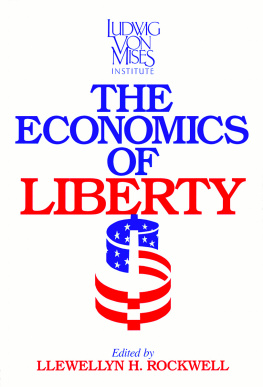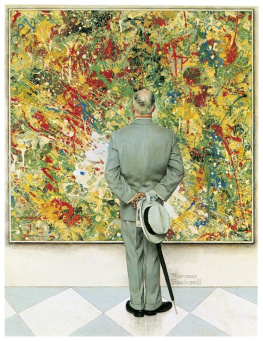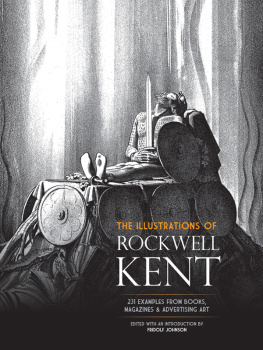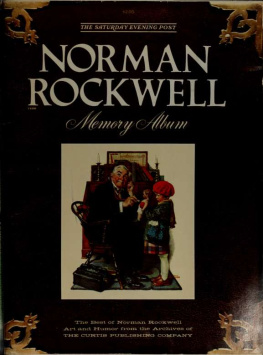Llewellyn H. Rockwell - The Economics of Liberty
Here you can read online Llewellyn H. Rockwell - The Economics of Liberty full text of the book (entire story) in english for free. Download pdf and epub, get meaning, cover and reviews about this ebook. City: Auburn, Ala, year: 1990, publisher: Ludwig von Mises Institute, genre: Politics. Description of the work, (preface) as well as reviews are available. Best literature library LitArk.com created for fans of good reading and offers a wide selection of genres:
Romance novel
Science fiction
Adventure
Detective
Science
History
Home and family
Prose
Art
Politics
Computer
Non-fiction
Religion
Business
Children
Humor
Choose a favorite category and find really read worthwhile books. Enjoy immersion in the world of imagination, feel the emotions of the characters or learn something new for yourself, make an fascinating discovery.
- Book:The Economics of Liberty
- Author:
- Publisher:Ludwig von Mises Institute
- Genre:
- Year:1990
- City:Auburn, Ala
- Rating:4 / 5
- Favourites:Add to favourites
- Your mark:
- 80
- 1
- 2
- 3
- 4
- 5
The Economics of Liberty: summary, description and annotation
We offer to read an annotation, description, summary or preface (depends on what the author of the book "The Economics of Liberty" wrote himself). If you haven't found the necessary information about the book — write in the comments, we will try to find it.
The Economics of Liberty — read online for free the complete book (whole text) full work
Below is the text of the book, divided by pages. System saving the place of the last page read, allows you to conveniently read the book "The Economics of Liberty" online for free, without having to search again every time where you left off. Put a bookmark, and you can go to the page where you finished reading at any time.
Font size:
Interval:
Bookmark:
W hen Ronald Reagan was elected to the presidency in 1980, many conservatives (myself among them) were euphoric. They expected a wholesale reform in American government; there was even talk of a Reagan Revolution. It seemed likely that there would be an early campaign to repeal the Great Society programs Reagan had always opposed, and, once that was accomplished, a repeal of the New Deal itself.
Liberals, meanwhile, nervously insisted that Reagan had no mandate for any such sweeping changes. Some of them predicted, with more hope than confidence, that reality would force Reagan to subordinate ideology to pragmatism.
When Reagan left office eight years later, it looked as if the liberals had been right. Not much had changed. The system remained what it had been in 1980; Reagan hadnt even abolished the federal governments commitment to affirmative action, which Lyndon Johnson had established by executive order, and which Reagan could have done away with by the same simple meansa stroke of the pen, requiring no legislative or judicial support.
Federal spending had doubled across the board. The federal government was committed to a budget of over a trillion dollars per year, or about $4,000 per U.S. citizen. Though nobody took a poll, it seems safe to say that few citizens felt they were getting $4,000 worth of government services.
For all that, Reagan left the stage bowing to wild applause, as if his two terms had been an era of heroic achievements. Both he and his Democratic opponents had a vested interest in the idea that he had made radical changeshe because he wanted credit, they because they needed a bogeyman.
No doubt Reagan had made a difference in the tone of American politics. He had made conservative and free-market rhetoric fashionable, and helped put liberalism in disrepute. Reagans presidency had also coincided with the collapse of socialism around the world, and may well have helped supply the impetus for it, though of course the ultimate cause of socialisms collapse was socialism itself.
It isnt easy to assign causes to historical processes. A great many things happen in any eight-year period, and Reagan was surely more symptom than motor of the decline of collectivism. It was part of his political and theatrical genius to personalize the process, modestly assuming the lions share of the credit for what was happening anyway.
He did give dozens of worthwhile initiatives more support and encouragement than they would have had under almost any other president. Conservatives in Washington are now keenly aware that they enjoy much less access to President Bush than they did to President Reagan, under whom they encountered frustration enough, and there seems to be a concerted effort to remove Reaganites from the bureaucracies.
The result is that the conservatives now feel bereft by Reagans absence. They regard his presidency as a lost opportunity, but at least while it lasted, it seemed an opportunity; now there is barely even the illusion of hope for real reform. George Bush is pretty clearly a status-quo man who wants more than anything to avoid conflict with Congress. He doesnt even daydream of radical change. In fact his rhetoric often implies that he is offering relief from the highly-charged ideological confrontations of the Reagan years.
In his own way, Bush supports the myth that the Reagan years were years of a drastic unsettling of the American political system. His special angle is the suggestion that Reagans alleged achievements have been so fully realized that there is no need for him to disturb us further by adding anything significant to them.
Conservatives would be much happier, and better off, if they recognized frankly that Reagan was always primarily a politician and an insider, a loyal member of the establishment he seemed to challenge. He simply understood that the way to rise within the system was to make a special appeal to the voters who were dissatisfied with it from conservative motivesmoral traditionalists and economic libertarians. He succeeded within that system by growling at it a little, enlisting popular discontent on his side. He was sincere enough. But he was also too prudent ever to enrage the establishmentincluding the pressure groups and tens of millions of voters who receive income and other special benefits from the federal governmentby seriously threatening their interests. The main difference between Reagan and Bush is that Bush dropped his conservative campaign rhetoric almost as soon as he had won his election; Reagan kept speaking it while in office.
In short, Reagan posed as a right-wing outsider, while he was in fact not much more than the extreme right wing of the insiders. Maybe he couldnt have succeeded any other way; but it was his own success, not that of conservative causes, that was always his real concern. In that sense, Bush was his appropriate successor. Bush is merely less skillful at persuading conservatives that he has their interests at heart.
This is all to the good . Conservatives spent eight years waiting for Ronald Reagan to start acting like the messiah they were hoping for. Let Reagan be Reagan, they said, unable to see that he was being Reagan by arousing their yearnings and enlisting their loyalties while letting them cool their heels. Now they may begin to understand that they are on their own.
During the Reagan years, conservative activists have developed a detailed agendasecuring government appointments for their own, implementing the Strategic Defense Initiative, aiding various insurgent forces around the worldthat may or may not be defensible in piecemeal terms but is less and less clearly related to broadly shared principles of government.
This agenda has something baroque about it: more and more, it resembles the familiar menus of liberal causes and programs. In fact, most of its items can co-exist with the liberal programs that have already been installed, which conservatives have quietly stopped trying to repeal. Jack Kemp, the conservative activists favorite during the 1988 primaries, is the most conspicuous example of the conservative who has come to terms with the liberal programs that have been instituted since the New Deal; its appropriate that he is now Secretary of Housing and Urban Development. The career of William Bennettfirst as Education Secretary and then as drug czaralso illustrates how readily some conservatives drop their objections to federal power when it is exercised in the name of their values.
Whatever may be said for fine-tuning liberal programs by adapting them to market incentives, this is not an approach that will make conservatism a powerful political force, because it does nothing to assert conservatism as an independent rival principle to collectivism. It merely tries to sell conservatism as a set of superior methods for achieving collectivist goals. This was also the weakness of supply-side economics: it offered to increase rather than cut federal revenues. It located itself in a marginal area of common interest between liberalism and conservatism.
Since Reagan, in other words, conservatives have lost their identity. Loyalty to Reagan himself has helped make them forget and abandon their traditional purpose of reducing the size of government, and, more fundamentally, of defining the role of government in strict and principled terms. If liberals have programs, conservatives now offer alternative programs. They seldom offer philosophical and constitutional objections to the goals of liberalism.
Among other things, this has relieved liberals of the necessity of having, or defending, a philosophy. As a practical matter, everyone seems to accept without discussion the crude assumption that government should solve whatever is presented as a political problem or redress whatever is asserted as a grievance. The result is an ever-growing accretion of State programs, enterprises, institutions, bureaucracies. These are usually failures or waste of money on their own terms, but since there are no firm criteria for success or failure except a literal-minded common sense that has no political purchase, it hardly matters; once established, they operate autonomously, their subsidization assured.
Font size:
Interval:
Bookmark:
Similar books «The Economics of Liberty»
Look at similar books to The Economics of Liberty. We have selected literature similar in name and meaning in the hope of providing readers with more options to find new, interesting, not yet read works.
Discussion, reviews of the book The Economics of Liberty and just readers' own opinions. Leave your comments, write what you think about the work, its meaning or the main characters. Specify what exactly you liked and what you didn't like, and why you think so.













